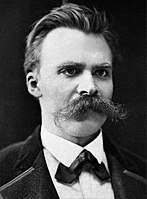
Photo from wikipedia
Can one be too smart? In some disciplines such as physics and mathematics the answer is clearly no. However, in medicine the answer is not so clear. Emil (Jay) Freireich… Click to show full abstract
Can one be too smart? In some disciplines such as physics and mathematics the answer is clearly no. However, in medicine the answer is not so clear. Emil (Jay) Freireich was a genius, a descriptor too often casually given (for example, to everyone’s child). Genius comes from the Latin word meaning guardian deity or spirit which watches over each person from birth. The OED defines genius is exceptional intellectual or creative power or other natural ability. By this standard there is no doubt Jay had genius and was a genius. In the preceding obituary my colleague Prof. Hagop Kantarjian reviewed in detail Prof. Freireich’s enormous contribution to leukemia research [1]. My goal is to comment on his career in the context of another great thinker: Baruch Spinoza. But 1st, back to the question whether someone can be too smart. I have always regarded Prof. Freireich as a modern version of Baruch (de) Spinoza, the 17th century Dutch Enlightenment philosopher of Portuguese, Sephardic ancestry. Jay, born in the US in a humble Jewish background from Hungarian immigrants, rose to the highest echelons of medicine. Spinoza, who was deeply educated in Judaism, began to question the authenticity of the Bible. Naturally, he was considered a heretic and blasphemer and exiled from the Jewish community of Amsterdam in 1655. The irony of Spinoza’s life was that despite this he was also rejected by Christians who called him an atheist Jewish. Spinoza’s books, especially Ethics, were later added to the Catholic Church’s Index of Forbidden Books and was frequently called an atheist Jew by contemporaries although nowhere in his work did he argue against the existence of God. If this seems an oxymoron consider the Aesop fable of the wolf and the lamb (Perry Index 155). You may be wondering what any of this has to do with Prof. Freireich. First, like Spinoza, he was never comfortable with his Jewishness, preferring to be branded a Texan with his ten gallon hat and cowboy boots. He once brought Texas wines to a leukemia meeting I organized in the Texas Hill country. The French were aghast. J’s genius (his middle initial was J with no punctuation or name) along with Profs. Emil Frei and James Holland (my teacher) at the National Cancer Institute, was to develop the concept of multiple drug therapy of childhood * Robert Peter Gale [email protected]
Journal Title: Bone Marrow Transplantation
Year Published: 2021
Link to full text (if available)
Share on Social Media: Sign Up to like & get
recommendations!